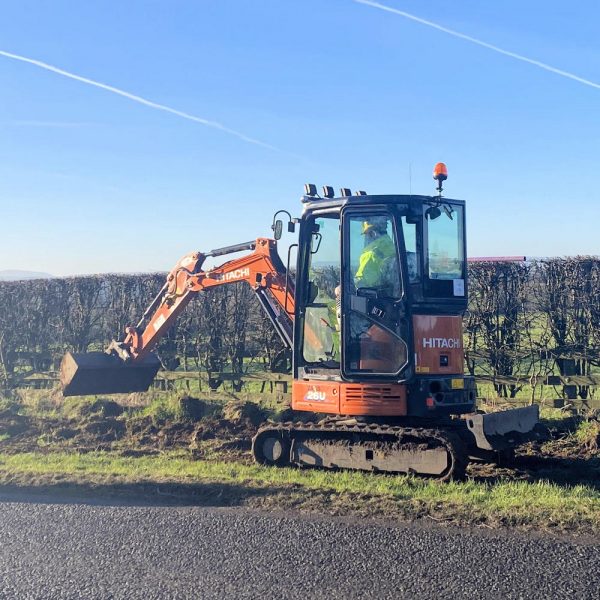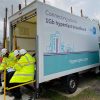Fibrus Grow FTTP Broadband Cover in Cumbria to 36K Premises

Infracapital-backed broadband ISP Fibrus, which is building a 10Gbps capable Fibre-to-the-Premises (FTTP) network across Northern Ireland and parts of North England, has revealed that their deployment in Cumbria has now reached 36,000 premises (including nearly 12,000 across the town of Workington).
Just for context. Fibrus’ last overall progress update was in August 2023, when the operator revealed that their network had covered a total of 300k UK premises (273k RFS) and was home to 50,000 customers. At the time, the operator predicted that it would cover 400k premises by March 2024 (i.e. 150,000 in a single year).
In terms of England, Fibrus has both a commercial roll-out across parts of Cumbria, and they also hold the £108m (Lot 28) Project Gigabit contract for 60,000 premises in the same county (here). The 36,000 premises announced today thus appears to be a combination of both efforts. The related build is currently focused on upgrading parts of Kendal, Penrith, Workington and Aspatria.
Advertisement
However, the provider today confirmed that they would start work in another 15 towns and villages during the first half of 2024, including Windermere, Whitehaven, St Bees, Flookburgh, Great Broughton, Cockermouth, Distington and Keswick.
Colin Hutchinson, CFO of Fibrus, said:
“We’ve made excellent progress in what is a challenging environment to build. The sheer size of Cumbria presents challenges, as does the geology – we’ve had to drill through rock in some places – and with two National Parks and three designated Areas of Outstanding Natural Beauty, we’ve had to take extra care to minimise the impact of our work on the environment.
It’s been particularly satisfying to start delivery on Project Gigabit, bringing full-fibre broadband to parts of the UK that might otherwise miss out on getting the digital connectivity they need. Full-fibre broadband is the mains electricity of the 21st century and it’s vital that it is widely available. Fibrus will continue to address the digital imbalance in rural connectivity and we look forward to seeing more communities enjoying the benefits of our full-fibre network.”
The company has also hosted related events in 11 communities to explain its work, responded to more than 300 enquiries and launched an apprentice training facility at Newton Rigg, Penrith, where 16 apprentices have completed training and another 74 will be trained by 2026.In addition, Fibrus is also providing £212,000 to support community projects over the life of the Project Gigabit contract.
Admittedly, it hasn’t all been smooth sailing. In December 2023 we revealed that Fibrus had pulled out of the other state aid supported Project Gigabit contract for the North East of England and, on top of that, they paused their related commercial build plans for Northumberland and Durham (here). “Given the state and cost of the capital markets we have taken the decision to focus our equity and debt funding in our home markets of NI and Cumbria,” said the operator.
At this stage it remains unclear how much the recent disruption will impact their original target of covering 1 million premises by around the end of Q1 2026 – reflecting around 450,000 premises in N.Ireland (c. 50% of homes in the region) and the rest from England. In the past there has also been some talk about expanding into Scotland, but that too is now likely to be resting on the back burner.
Advertisement
Mark is a professional technology writer, IT consultant and computer engineer from Dorset (England), he also founded ISPreview in 1999 and enjoys analysing the latest telecoms and broadband developments. Find me on X (Twitter), Mastodon, Facebook, BlueSky, Threads.net and Linkedin.
« Cityfibre UK Completes Full Fibre Broadband Rollout in Slough
London UK Full Fibre ISP G.Network Discounts 300Mbps to £24 »























































Odd firm they take customers, send out routers, have cables installed to the house from poles on the street and promise customers they will have internet that day, then ring them back the next day saying it will be another 3 months we forgot to lay the main cables in the street under the paths so nothing is connected…. lots of horror stories like this one on facebook.
Great speed and price. But we now have open reach and fibrus as two distinct connections to our house in Kendal. Like having two gas pipes to house when one should do. Of course, we only pay for one, but the duplication of investment, disruption caused by installation etc by regulated (ha!) utility is daft. I thought they were to connect where open reach couldn’t/wouldn’t.
If this was the case we’d end up with something not too dissimilar to that what they have in the USA whereby certain companies have total monopolies in areas and charge exorbitant amounts for very little. The competition helps push the big guys to be competitive.
Indeed but I think ofcom felt it was the only thing they had in their power to force BTs hand in deploying fttp some time in the next decade.
As it’s turned out precious few altnets will be making any money soon so it’s turned out to be only a few billion of inefficiency.
Which is kindof why ‘national’ infrastructure should be that, not a fragmented conglomeration of ‘competitors, resellign the sam kind of thing – then you have small co ‘failures’ leading to what for consumers (oh a bit like service companies electricity, gas and water & sewerage, rails and others?) Nothing like a co-ordinated set of national services, but on the plus side we end up with hundreds of ‘ceo’s who cream off the proffits, cause the failures and get away without any financial impediment or accountability, all at the end consumers costs?
The government is not accountable to any of its failures so pretty moot point